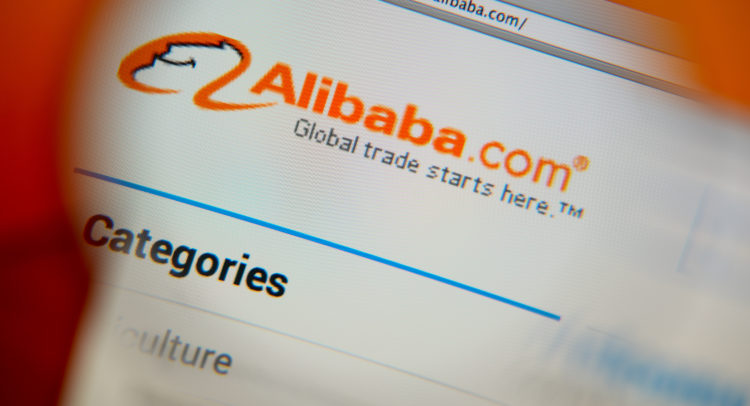Based in China, Alibaba (BABA) runs a popular e-commerce platform where a wide variety of products are bought and sold. I am neutral on the stock.
Between supply chain disruptions and COVID-19 lockdowns, businesses in China have been under tremendous pressure in 2022. The last thing they need is for the government to place harsh restrictions on technology-related companies.
Yet, it appears that Beijing hasn’t made it easy for tech companies like Alibaba to conduct business. The Chinese government’s concerns over cybersecurity have, it seems, resulted in policies that inhibit revenue generation.
Still, as we’ll see, Alibaba has managed to grow its revenue and that’s a testament to the company’s resilience. On the other hand, a deeper look into Alibaba’s financial stats will reveal problems that must be resolved.
On top of that, there’s been confusion about whether the IPO of Alibaba’s fintech affiliate, Ant Group, will move forward. All in all, it’s going to remain difficult for investors to navigate China’s regulatory environment and Alibaba stock is likely to wobble for a while.

On TipRanks, BABA scores a 9 out of 10 on the Smart Score spectrum. This indicates a potential for the stock to outperform the broader market.
On Again, Off Again
For quite a while now, prospective investors have awaited the IPO of Alibaba co-founder Jack Ma’s Ant Group. Month-after-month, people have waited for positive news but their patience is getting stretched thin.
Meanwhile, Alibaba stock has just kept on sliding. Back in October of 2020, Alibaba shares traded above $300. More recently, the stock hovered near the $110 level.
The downward trend in Alibaba stock started before supply chain bottlenecks wreaked havoc on the global economy. This suggests that China’s strict regulations may have been the primary headwind for Alibaba since late 2020 (though COVID-19 lockdowns undoubtedly created problems, as well).
Lately, developments surrounding the potential Ant IPO have been in the headlines, though there’s been some confusion. First, on June 9, Reuters reported that “China’s central leadership has given a tentative green light to” Ant Group to revive its IPO in Shanghai and Hong Kong.
This sounds like great news for Ant and Alibaba, right? Not so fast, the same Reuters report stated that Ant has no plans to re-launch its IPO. Furthermore, the Ant IPO would require guidance from the China Securities Regulatory Commission (CSRC) before it could proceed.
Reportedly, as far as the Ant IPO is concerned, the CSRC clarified that it “has not conducted evaluation and research work in this regard.” However, the CSRC also stated that it supports “eligible platform companies to list at home and abroad.”
These developments are only making it harder to invest in Alibaba with confidence. As Jimmy Lee, CEO of The Wealth Consulting Group, put it, “I do not think that the crackdown is behind us for good as the Chinese will do what they need to when they feel like it. Unfortunately, I think it’s that simple.”
A Big Loss and No Guidance
All of the aforementioned headwinds are clearly taking a toll on Alibaba’s financials. Sure, the company is an e-commerce giant in China. However, there are just too many ongoing problems to allow Alibaba to thrive as a business.
If prospective investors are looking for revenue and earnings guidance from Alibaba, they’ll definitely be disappointed. Due to the “risks and uncertainties arising from COVID-19, which we are not able to control and are difficult for us to predict,” Alibaba opted “not to give financial guidance as we typically do at the start of the fiscal year” in the company’s most recently released quarterly financial statement.
Drilling down to Alibaba’s performance during 2022’s first quarter, both the bulls and the bears can cherry-pick their preferred stats. In the bullish column is Alibaba’s modest 9% revenue growth, from 187.4 million RMB in Q1 2021 to 204.05 million RMB in 2022’s first quarter.
It might be argued, however, that bottom-line results are more important than revenue growth. In Alibaba’s case, the company’s net earnings loss widened by 140%, from 7.65 million RMB in 2021’s first quarter to 18.36 million RMB in Q1 2022. Also, during the same time frame, Alibaba’s adjusted EBITDA decreased 22% year over year, from 29.9 million RMB to 23.37 million RMB.
Thus, even though Alibaba CFO Toby Xu claimed that his company “delivered healthy results this quarter,” the bottom-line figures indicated losses, not a gains. Xu might declare that Alibaba’s “continued investments
in strategic initiatives have generated promising growth momentum,” but the numbers tell a different story.
Wall Street’s Take

According to TipRanks’ analyst rating consensus, BABA is a Strong Buy, based on 17 Buy and two Hold ratings. The average Alibaba price target is $159.84, implying 45.52% upside potential.
The Takeaway
Once valued at $300, Alibaba stock is now on a long-term downward trend. Multiple challenges, including Beijing’s harsh regulatory policies and COVID-19 lockdowns, have made it difficult for Alibaba to prosper as a business, and appear attractive to investors.
Additionally, the Ant IPO is in limbo at the moment, so don’t anticipate that event to happen anytime soon. Frankly, it could take a while for Alibaba stock to turn around, and the best policy now is to just watch it from a distance.
Read full Disclosure









